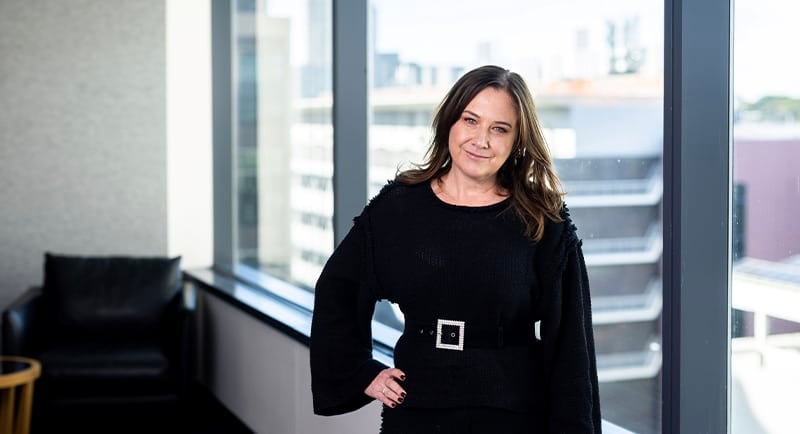As you settle in for the evening after a big day, do you turn on the TV? See what’s available on a streaming platform? Open your phone and scroll through one of many – many – social media apps?
Media fragmentation is not a new phenomenon, but it’s an increasingly tricky one for advertisers and brands to combat.
Mediaweek caught up with Seven’s chief marketing and audience officer, Melissa Hopkins, to speak about the impact that fragmentation is having, and what some of the biggest challenges for marketers are in the current landscape.
With the world of media spread increasingly thin, it’s harder than ever for advertisers to reach audiences. In Hopkins’ own words, “It’s really, really complex.”
“I’ve sat on the other side for the bulk of my career – there is absolutely a role for digital, there is absolutely a role for lots of other channels. The most surprising thing for me coming in, is that when you start looking at the fragmentation in media, the reach of platforms like Seven has absolutely blown me away.
“These headlines about TV shrinking and dying, I think they’re really unhelpful. Our job as media owners is to help navigate and help advertisers work their way through probably the most complex media landscape there has ever been. It was way easier when I started 25 years ago!”

Whilst some trends come and go quicker than others, Hopkins predicts that media fragmentation is an issue that the industry will be facing in the long term.
“I think fragmentation is here to stay – Meta just launched Threads, that’s another new platform. Like anything there will be crowding and things will end up scaling back, but I don’t think that fragmentation is dead. The important part is really going back to appreciating the role that each platform plays.
“During Covid, print and news advertising were the most important things we could have done when I was at Optus, because it was contextual to the moment and the type of message we were getting across at that time. I think people forget that the best brand building happens when you think contextually around where people are seeing your message, how they’re seeing your message, and what the roles of the different platforms to deliver on that are.”
Regardless of the successes of individual platforms, Hopkins says that it’s it’s the responsibility of everyone in the industry to be honest about what the industry offers.
“Our job is to be really open and transparent about the roles and the success of each channel versus bashing each other’s channels and ripping them to shreds.
“What we’re really passionate about here at Seven, and what we will keep championing, is that we believe there should be transparent measurement. That is what should be shared with Australian advertisers, and we will challenge where we don’t feel there is always that transparency or independence in the measurement.”
Looking beyond the short-term
With the future anything but certain, Hopkins predicts that the road ahead will involve one particularly big challenge: the risk of getting too caught up on short-term ROI.
“I’m incredibly passionate about digital, and indeed, digital is a core part of Seven and our ecosystem. But I am fearful that by being too focused on short-term ROI, it will end up being at the deficit of building brand equity. There needs to be a balance, and you need to understand the right mix of channels to build brand equity, because the value of a brand now sits on the bottom of a balance sheet.”
At the end of the day, Hopkins predicts that brand building is where marketers will need to specifically focus their attention over the next 12 months or so.
“My theory is that this shift to very heavy digital spend, or very heavy programmatic is that it’s brilliant at short-term results. But is Mark Ritson going to be getting up in three years’ time and speaking about the death of brands because they’ve become so short-termist?
“I’ve spoken to a number of CMOs recently that have moved into digital businesses from more service-based business, and they’ve said that they’re so caught on programmatic and short-termism that it’s hard to challenge the need for brand building. The brand is suffering as a result.”
–
Top Image: Melissa Hopkins
